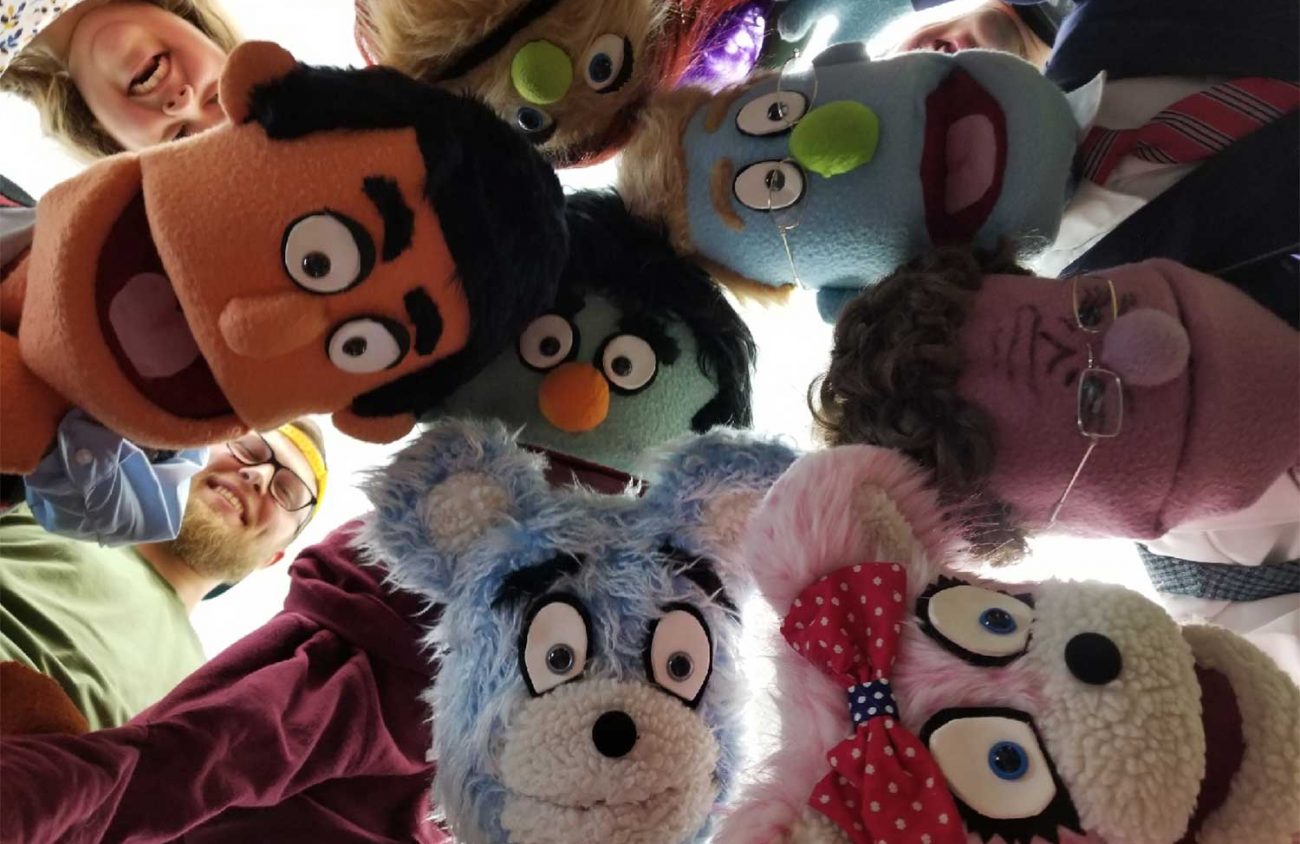It’s hard to imagine that a musical from the early 2000s could be seen as controversial and even outdated for our current political and social dilemma.
It’s even harder to imagine millennials knowing who Gary Coleman was. (The late actor, who played in the 1970s-80s sitcom Diff’rent Strokes, inspired a major character in the satirical musical, whose book is by Oregon native Jeff Whitty.) Let’s face it: Jokes about racism are more uncomfortable to laugh at these days.
However, the University of Oregon’s production of Avenue Q offers a more socially conscious take on Robert Lopez and Jeff Marx’s hilarious Tony-winning musical, reminding us to laugh our way through the muck, and also to question what it is we are really laughing at.
For anyone who has ever asked themselves, “What do I do with a bachelor’s in English?” as I have on late nights analyzing Spenserian stanzas, Avenue Q is the familiar story of the terrifying journey into disillusioned adulthood — but with puppets.
Princeton (Ben Larson), a young and naive college graduate, finds himself in a Manhattan slum looking for his true purpose in life, the result of which is a raunchy, albeit endearing, mash-up of South Park, Unbreakable Kimmy Schmidt and Sesame Street. The colorful inner-city backdrop by scenic designer Adam Whittredge is more polished than the real thing.
Though the show has a few sour notes — both intended and unintended — as well as an adapted moral compass that presents itself in projected hashtags above the stage, the UO’s production is exceptionally fun and full of talent. The puppetry alone is incredible to watch, thanks to the actors, puppet coach David Mort and No Strings Puppetworks.
Being that the puppets are only torsos (which makes for one very explicit and anatomically incorrect sex scene), the expressiveness of the actors and the puppets side-by-side is a harmonious and visceral blend of emotion. The unconcealed puppeteers animate the puppets even more than if the actors were fully obscured, as if to awaken us to the blind optimism of our youth.
Sophomore Jessica Jaszewski is especially lovely as the “adorkable” Kate Monster. Likewise, Andrew Tesoriero brings warmth and authenticity to the uptight and closeted Rod.
The musical numbers, though simple in nature, are hilariously crude and even sweet, as in “There’s a fine, fine line,” somberly sung by Jaszewki. While the song is largely about a romantic breakup, we are also reminded to think about the fine line satire straddles, especially when dealing with thematic elements like racism and sexuality, identity and self.
Director Zeina Salame clearly wants you to think about how the humor plays out, especially in “Everyone’s a Little Bit Racist.” During that song, the cast and crew explicitly call your attention to the obvious fact that the song itself is problematic.
Calling out our sensitivity to racism diminishes the satire of Avenue Q, as well as the audience’s experience with satire. It’s the audience’s responsibility to discern the message, not to be guided through it. Highlighting the issue brought me out of the experience a bit. But fear not, purists. “The Internet is for Porn” drags you right back into the underbelly.
Avenue Q is resonant for anyone who has swallowed the mythology that we are all special. Those of us who have suffered a bad ’90s mix tape and the hangover following a handful of Long Island iced teas will laugh and cringe at their past misfortune, while the younger audience who has yet to know the burden of defaulting on student loans or the consequences of a volatile market will likely recognize their grim future.
Avenue Q is a laugh-out-loud comedy that any good-humored adult should experience at least once. And despite the depraved, provocative tone, UO’s production manages to highlight the love and friendships within the story — or rather, our common humanity — making this puppet show as warm and cuddly as Trekkie Monster himself (Cobey Smith).
Avenue Q plays 7:30 pm Fridays & Saturdays through Nov. 17 at University of Oregon’s Robinson Theater; $10-$12.
